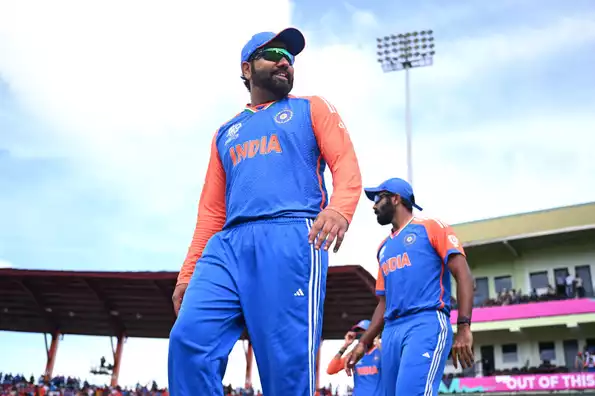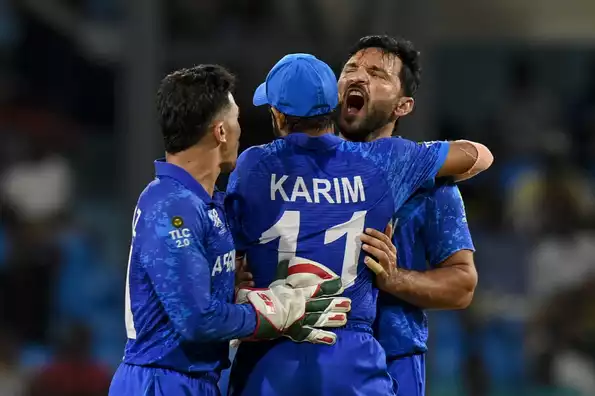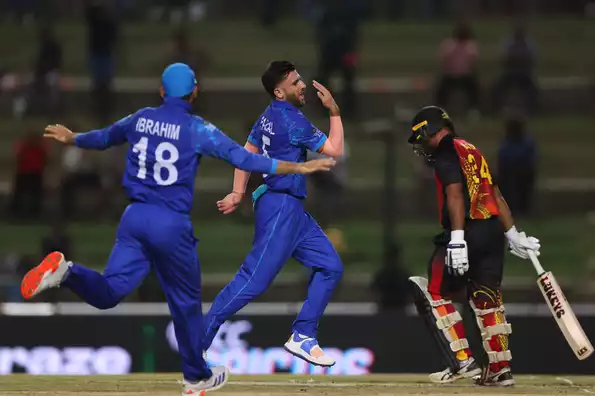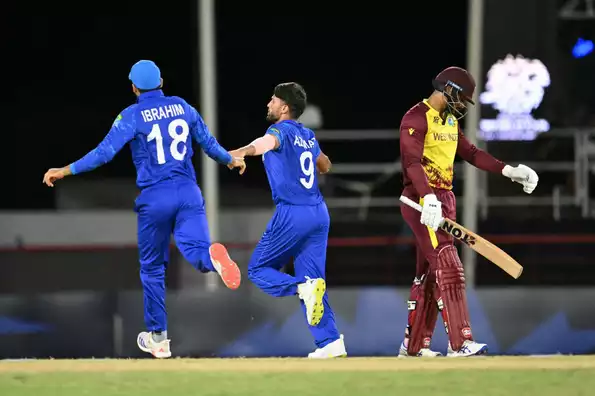In just about a year, the Rahul Dravid-Rohit Sharma combination will be heading into their third final, raising the big question: will the third attempt be the triumphant one? After the loss in the WTC final last June and the heartbreaking World Cup defeat at home last November – both against Australia incidentally – India are determined to set the record straight as they face South Africa in the Twenty20 World Cup final on Saturday. But can they?
“Yes of course,” said Rahul Dravid, on the eve of the match. “I think it’s good that we are consistent and playing good cricket. For many years, especially in the last year, being No 1 in all three formats, playing in the finals.., is a good thing. Indian cricket has shown a lot of consistency and it is a very happy thing. And… if we play well and if we have the rub of the green, then we will win.” The best part of the coach’s response was that the Indian team isn’t putting pressure on themselves, something they may have been guilty of on earlier two occasions, particularly last in the World Cup, to win the trophy. They are in a “life goes on” mode, blissfully unfazed about the ‘what-if’ factor.
The pressure aside, South Africa will be formidable opponents, and India will need to be at the top of their game. Before the match, the think tank must make several crucial calls: Would they be happy with South Africa chasing or bat first? And what should India do themselves? Considering they have batted first in both crucial games against Australia and England, would it be wise to stick with this strategy, or should they assess the pitch and decide if it favors an easier chase, as they often do in the IPL? Finally, will the pressure of the final be too overwhelming, prompting them to stick with what has been working so far?
Jos Buttler provided a peek at what is expected in the final. “I think the two top sides in the final and it is going to be a game of small margins and it’s going to be a great game. Two really good teams,” the England skipper said after his team’s semifinal loss to India in Georgetown on Thursday.
Selection seems easy as they have been very clear on roles and aimed to give each player maximum chance to prove themselves, a bit like the Chennai Super Kings formula, which means Virat Kohli and Shivam Dube, despite their underwhelming showing so far, are likely to be persisted with. Who’s to argue against that anyway, when there is success to show?
The threat for India lies in South Africa’s formidable batting lineup, which becomes even more dangerous on a good pitch with smaller boundary dimensions – a factor that could diminish the effectiveness of spinners. Heinrich Klaasen and David Miller are dangerous finishers who can apply strong pressure on the bowlers in the latter half of the innings. Quinton de Kock, who can dominate from the start, poses a challenge upfront as he showed against England in a league game.
Regarding the South Africa bowling, much will depend on how effectively India pairs Rishabh Pant and Shivam Dube against Keshav Maharaj and Tabraiz Shamsi. The challenge arises if Pant gets out early, which has been happening of late. Suryakumar Yadav and Hardik Pandya cannot be delayed in the batting order, which will leave India needing to find a way to involve Dube early to handle the spinners without taking too many balls away.
The pitch for the final (Pitch No. 4) has seen two previous games: England vs. Scotland, which was washed out, and Namibia vs. Oman, which went to a Super Over after a low-scoring affair. There’s limited information that can be drawn from these matches, especially on a smaller ground. This raises the obvious question: Can Indian spinners handle the conditions? Having been accustomed to playing on smaller grounds in the IPL, they should be. But then this is a World Cup final. Another point of note is how Indian batsmen handle their fast bowlers and how can they pair up their left-handers to take on the South African spinners?
But Dravid said they will try to control the controllables. “It’s just about all the guys getting into ensuring that physically, mentally, tactically we are ready for the game. Those are the things that we can control – that we are fresh, that we have looked after all our niggles if there are any, we have done all our tactical preparation and they are mentally relaxed and excited and looking forward to the game,” the coach, who will exit the Indian team after the final, said in a tone of pragmatism that has been a hallmark of his tenure.
When: Saturday, June 29 2024 at 20:00 IST, 10:00 Local Time
Where: Kensginton Oval, Bridgetown, Barbados
Head to head: India 14 – 11 South Africa
Teams watch
India
Tactics & matchups: Pacers have had more success than spinners in Barbados in this World Cup but India are unlikely to tinker with their three-prong spin attack. Left-arm orthodox of Axar Patel and Ravindra Jadeja might prove useful against Quinton de Kock and Aiden Markram, who have been dismissed by this bowling variety seven times combined in T20Is since 2022. Kuldeep has also had success against de Kock in T20s, having dismissed him twice in 20 deliveries. Arshdeep Singh matches up well against the opener as well, with three dismissals in 32 deliveries for only 31 runs. Hardik Pandya has had success against his former Gujarat Titans teammate David Miller, having accounted for his wicket four times.
Probable XI: Rohit Sharma (c), Virat Kohli, Rishabh Pant (wk), Suryakumar Yadav, Shivam Dube, Hardik Pandya, Ravindra Jadeja, Axar Patel, Kuldeep Yadav, Arshdeep Singh, Jasprit Bumrah
South Africa
Tactics & matchups: Kagiso Rabada, South Africa’s premier pacer, will be key up front for the first-time finalists as he has accounted for Rohit Sharma and Virat Kohli four times each in T20s, with the two openers having strike rates of 118.42 and 106.25 respectively against him. Rabada has also dismissed Suryakumar Yadav three times but has gone for 126 runs in 68 balls (batting SR of 185.29). Anrich Nortje has bowled well against Kohli, dismissing him three times in 33 balls for only 35 runs. Keshav Maharaj could prove useful against Rishabh Pant, having dismissed him twice in eight balls.
Probable XI: Quinton de Kock (wk), Reeza Hendricks, Aiden Markram (c), Heinrich Klaasen, David Miller, Tristan Stubbs, Marco Jansen, Keshav Maharaj, Kagiso Rabada, Anrich Nortje, Tabraiz Shamsi
Did you know?
– This is the first instance of two unbeaten teams facing off in a T20 World Cup final. The last instance of a team having an unbeaten run throughout a Men’s ICC tournament was the Champions Trophy in 2013 which India won
– This is the third ICC tournament final for India under Rohit Sharma in a little over 12 months – in three different formats. He could also become the first to 50 wins as a T20I captain
– Aiden Markram has a 100 percent success rate as a captain in ICC tournaments. Under his captaincy South Africa won six out of six in the Under 19 World Cup in 2014, he led them to two wins in the 2023 World Cup standing in for Temba Bavuma, and the unbeaten run in the 2024 T20 World Cup
– The last time India and South Africa met in a knockout game in an ICC tournament was the T20 World Cup 2014 semi-final in Mirpur. Virat Kohli struck an unbeaten 72 off 44 balls to guide India to a six-wicket win in that game.
What they said:
“I think what’s really important and I think what we’ve done really well as a group, I think in this whole tournament, is we have shown the ability to adapt, to recognize what is a good score. We played very differently in New York, than we played at St. Lucia. Then we played even in Barbados in the first game and I thought that the wicket was quite slow. But again, for a final, we are not really sure what we are going to come up against. And I’m just hoping that whatever we come up against, we will have the ability to recognize it and to be able to play accordingly, as we’ve done in the last three games” – Rahul Dravid, India head coach.
“We’ve been doing it for most of our careers, you jump from venue to venue where conditions are quite different. So, it’s again just adapting to whatever is in front of you and playing the pitch and the game that’s in front of you. We’ll try to find ways to always take wickets with the ball and from a batting point of view try to get to a score that’s defendable. So yeah, not looking too much into conditions. Both teams have to play on the same wicket. And ultimately, if you can develop some plans and come up with some plans on the day that can give you a good chance to win, then hopefully it works out that way” – Aiden Markram, South Africa captain.





